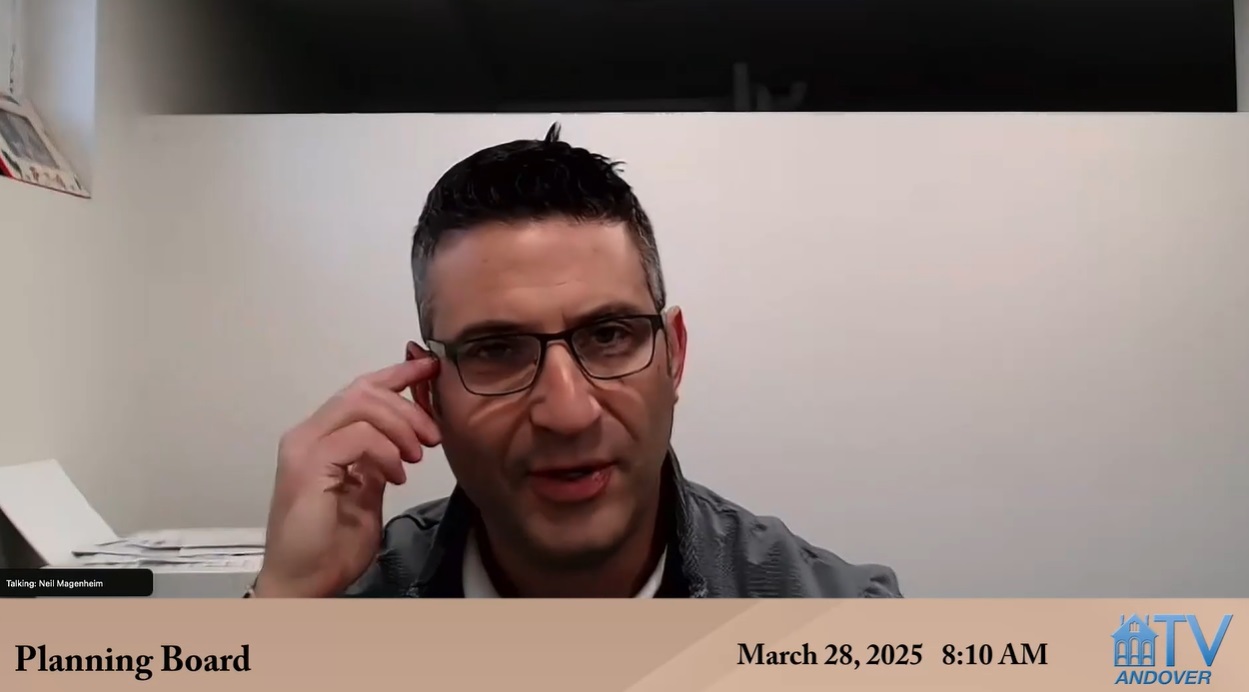Five town boards can continue meeting almost exclusively on Zoom, rather than in person, after Gov. Maura Healey signed legislation Friday extending rules created in response to the COVID-19 pandemic.
While some residents may face challenges accessing virtual meetings, and the meetings can limit the opportunity for questions from non-board members, Andover board representatives said remote participation has proven more convenient for their members and the public. Proponents also argue that virtual meetings reduce travel costs for hired consultants and increase boards’ productivity.
“Everyone has different challenges in their home life, and having the flexibility of virtual meetings removes some of those barriers,” said Paul Materazzo, director of planning and land use, in a phone interview.
However, open-government advocacy groups say the best answer is to hold hybrid meetings, where board members still meet in person, while allowing for a virtual option.
At in-person meetings, groups can rally and show support for causes, journalists and residents can pose questions that are avoidable in online forums, and certain disabilities can be better accommodated, said Justin Silverman, executive director of New England First Amendment Coalition.
This story was published as part of a collaboration between Andover News and the Department of Journalism in Boston University’s College of Communication. The student journalist is a member of Professor Meghan E. Irons’s Reporting in Depth class.
“Both points of access [in-person and virtual] need to be provided, that is the most equitable way forward,” Silverman said. “It should be provided to every person in the state so no one is left out of government, and everyone has the opportunity to meaningfully engage with those that are making critical decisions on their behalf.
More than a dozen Andover committees and boards host meetings primarily in person, with certain boards offering both in-person and Zoom options, according to the minutes of these town boards.
The Andover Green Advisory Board, Conservation Commission, Planning Board, West Elementary School Building Committee and Commission on Disability typically meet on Zoom, according to the minutes on the town office’s website.
2020 bill supported in wake of Covid
A bill to allow town boards to meet virtually was originally instituted during the COVID-19 pandemic that began in 2020, according to the Massachusetts government website. At that time, board members could not gather in person.
This ability was extended in February 2022 and March 2023.
While municipalities are not required to meet in person under this law, members of the public must be able to watch the proceedings of the board in real-time through telecommunication, according to the bill.
The Andover Planning Board, which reviews developments in Andover, currently holds nearly all of its meetings virtually, but projects of particular public interest are hosted in-person, Materazzo said.
“Oftentimes, holding public meetings in person alienates a certain segment of the population, and so the board strategically has been holding in-person meetings — as well as virtual — depending on the workload of what’s on the agenda,” Materazzo said.
The Planning Board hosted select meetings in person last year, including one onsite visit and a joint meeting with other boards, according to the committee’s minutes. Over 75 percent of the board’s meetings were held exclusively on Zoom with no in-person component.
Neil Magenheim, chairman of the Planning Board, addressed the issue at a board meeting last year, saying that “flexibility” is a key factor for the board’s meeting format.
“We’re not saying we’re not open to doing it more often in person and we’re set on doing it remotely,” Magenheim said, according to a board meeting recording from Dec. 10, 2024. “We are interested in [being] willing to show some flexibility in doing it in person.”
The Conservation Commission, which reviews projects in accordance with the town’s conservation laws, uses a virtual format that reduces costs for applicants by cutting travel times of their specialists, said conservation director Robert Douglas, during an interview recently.
“It’s shown itself to be a very viable technology,” said Douglas. “We’re getting more participation from neighbors and interested people, as well as the hired staff for this particular project.”
Maureen Herald, a wetland consultant who works with Andover residents, said she charges clients for travel time and the duration of project hearings. She said the cost for her services can be cut in half when she can attend the Conservation Commission meetings remotely.
“Sometimes, if you’re first on, you might be in and out of there in 20 minutes,” Herald said. “Sometimes, you wait two hours sitting at the town hall, waiting for your project to be heard.”
Since the transition to virtual meetings, the commission received one request to hold an in-person hearing for a project improving trails near Haggetts Pond, said Donald Cooper, chairman of the Conservation Commission, in a recorded meeting last year. Meetings concerning the project were conducted in person.
Mike Timko, a senior resident of Andover, said while remote meetings are not inherently problematic as long as laws are being followed, older people who are not technologically advanced are left out in this format.
Nearly 23 percent of Andover residents over the age of 60 had not used the internet during the previous month, according to the 2018 Massachusetts Healthy Aging Data Report.
Both Materazzo and Douglas said that if the virtual provisions are not extended by the Healey administration, the meetings will return to being held in person.
“Based on conversations I’ve had with all parties — applicants, consultants, commissioners, staff — they find that the virtual meetings are effective,” Douglas said. “If that sun sets, then we don’t have the power to use it anymore.”

